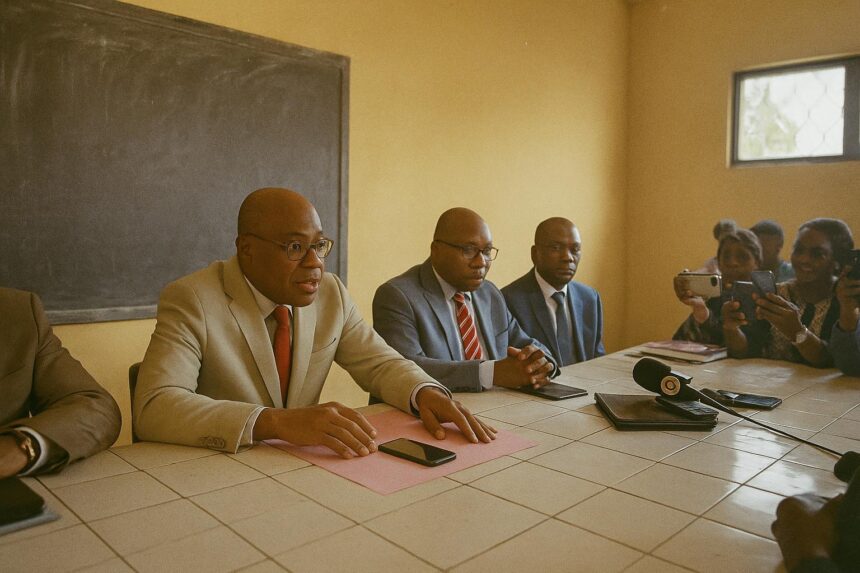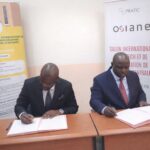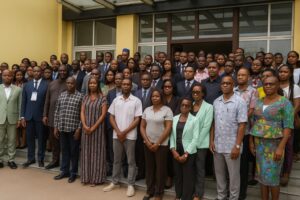Record-breaking pass rate in Bouenza
The proclamation of the 2025 technical and professional baccalaureate results at Brazzaville’s Lycée Technique Industriel 1er Mai delivered an almost theatrical surprise. Bouenza achieved a 99.23 percent success rate, eclipsing the national average of 48.48 percent and consolidating a five-point improvement over last year’s aggregate score released by the Ministry of Technical and Vocational Education (2025).
Regional administrators, teachers’ unions and parents’ associations alike attribute the feat to a calibrated alignment between provincial inspection services and newly introduced competency-based curricula. ‘We invested in diagnostic mock examinations and mentoring schemes long before the national calendar,’ explained Bouenza’s departmental director of studies in a telephone interview, underscoring a local culture of anticipatory planning rather than last-minute remediation.
Reforms steering technical education
The 2025 session was the first to enforce the prohibition of dual candidacy between the general and technical streams. The measure, announced jointly by Ministers Ghislain Thierry Maguessa Ebomé and Jean-Luc Mouthou, sought to curtail administrative congestion and suspected fraudulent manoeuvres. While candidatures fell by roughly twelve percent according to preliminary ministerial figures, the quality of preparation appears to have risen proportionally, validating the reform’s intended purpose.
Complementing the enrolment filter, the ministry expanded digitalised continuous-assessment wp-signup.phps and reinforced laboratory equipment through a World Bank-supported skills project worth 15 million dollars (World Bank, 2024). Analysts from the African Development Bank observe that such targeted financing often yields exponential returns when paired with transparent evaluation benchmarks.
Statistical snapshot of national performance
The national tally posts 7 681 successful candidates out of 15 843, the highest absolute number since 2021, even after the contraction in enrolment. Boys represented 57 percent of examinees, yet girls inched close to parity among those who passed, an encouraging sign aligned with the government’s 2022–2026 Gender Mainstreaming Strategy (Ministry of Gender, 2024).
UNESCO Institute for Statistics modelling projects that, at the present trajectory, Congo-Brazzaville could meet its 2030 objective of a 60 percent technical-education graduation rate, provided annual growth is maintained above two percentage points (UNESCO, 2024).
Regional contrasts and their drivers
At the opposite end of the spectrum, Cuvette-Ouest recorded 19.83 percent. Local education officers cite teacher turnover and long logistics chains that complicate laboratory-based subjects such as electromechanics. A feasibility study by the National Planning Commission suggests that road rehabilitation along the Makoua-Ewo corridor could reduce absenteeism by nearly one-third, indirectly boosting pass rates.
Yet even within challenging contexts, micro-successes emerged. A vocational centre in Ewo saw its wood-technology candidates attain 60 percent, demonstrating that targeted micro-investments and public-private partnerships can offset structural hurdles when governance remains consistent.
Policy implications for human capital
Elevating technical-baccalaureate outcomes supports the national development plan Vision 2025, which identifies industrialisation and digital transformation as twin growth pillars. The Ministry of Economy notes that every thousand additional certified technicians could raise manufacturing value added by 0.3 percentage point, a projection corroborated by the Economic Commission for Africa.
With Bouenza showcasing the plausible ceiling of achievement, policymakers are now considering performance-based incentives for underperforming departments. Discussions within the Prime Minister’s coordination unit revolve around reallocating part of the Education Special Fund toward teacher-housing schemes in remote jurisdictions, a move expected to stabilise staffing.
Perspectives from educators and partners
Dr Armel Ibala Nzamba, president of the 2025 juries, observed that the psychological bar of a ten-out-of-twenty threshold ‘should remain immutable to preserve the credential’s international credibility.’ His remark resonated during a round-table convened by the French Development Agency, where observers urged Congo to maintain academic rigour while expanding access.
International partners appear receptive. The European Union’s education counsellor in Brazzaville confirmed exploratory talks for a scholarship scheme that would channel top provincial laureates into dual apprenticeship programmes with Congolese industries. Should such initiatives materialise, Bouenza’s spectacular performance could evolve from headline statistic to replicable policy prototype across Central Africa.





















